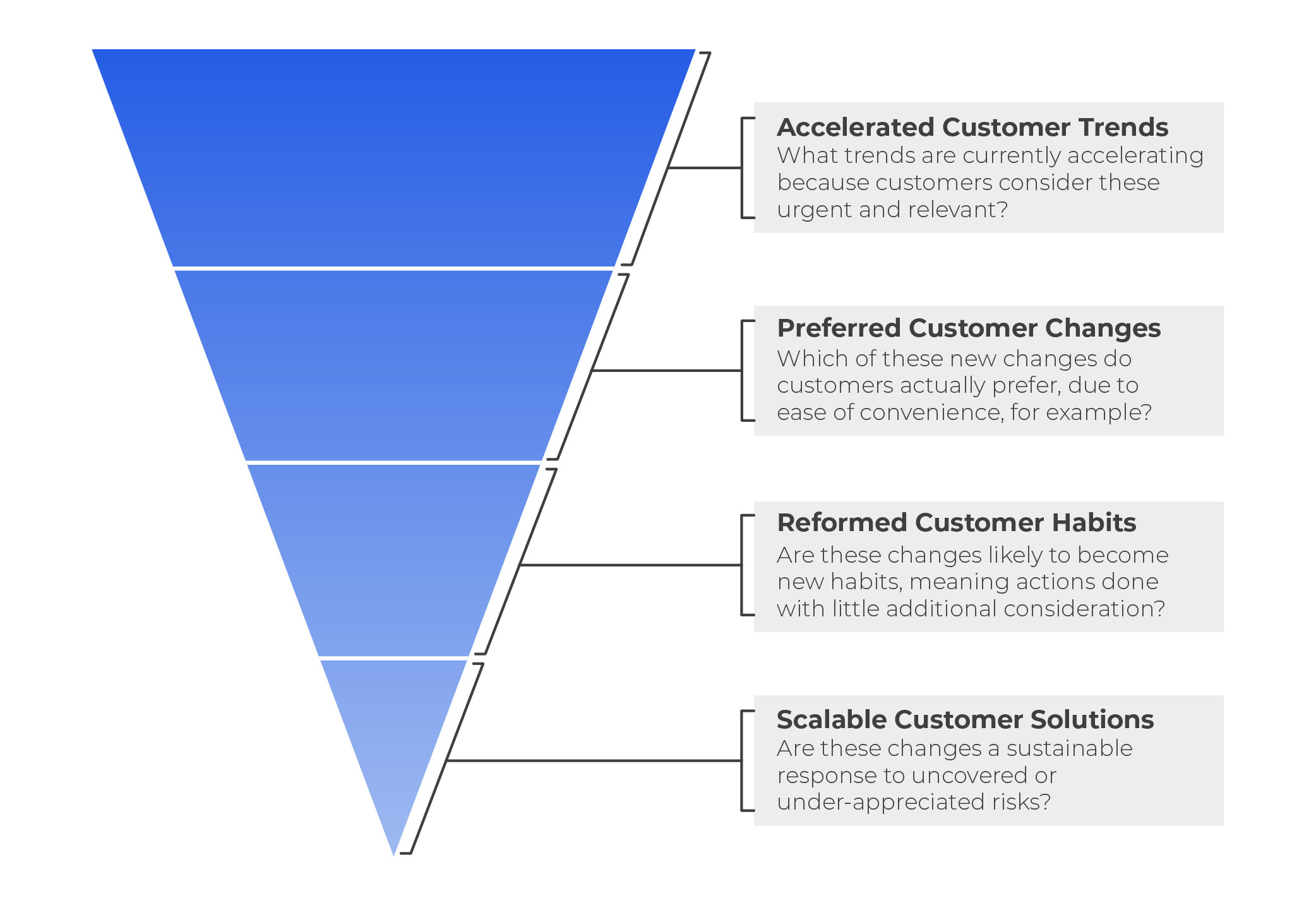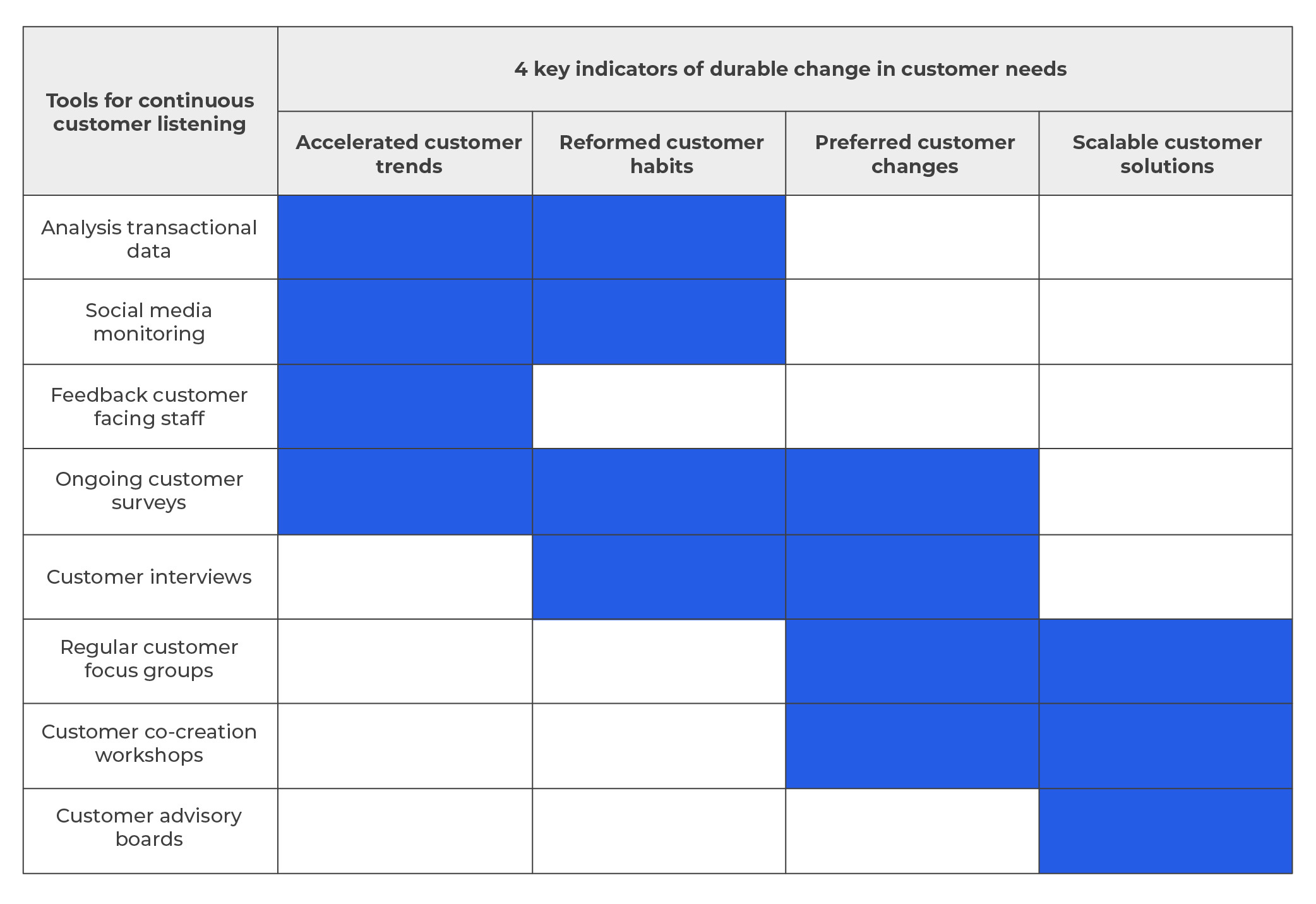It is hard to deny that the world around us is changing, becoming much more complex and unpredictable – for both B2B and B2C brands. The recent global pandemic has changed consumer purchasing habits, making for a more discerning and meaningful economy.
The past twelve months have seen a digital acceleration in ways that have never been seen before, in terms of both the way that consumers are purchasing as well as how businesses are selling – with launches of both new digital products and services and supercharged innovations in technology happening at warp speed.
From a marketing agency point of view, today’s B2B and B2C consumers are behaving in a different way to the way they did pre-COVID due to their changing needs, and this means the reasons behind why they buy certain products and services may also differ.
The world as a whole is embracing the digital world more confidently on a daily basis and consumers are now demanding personalised seamless customer-focused experiences from both B2C and B2B brands.
Businesses need to be agile to survive
For businesses, this rapid and ongoing change means they need to be more agile than they have ever been. Our world seems to be evolving at a rapid pace, and the only way for us to deal with this perpetually changing situation is to be continuously adaptable to ensure we all stay competitive and maintain the deep-rooted loyalty of our customer base.
In fact, recent research by global consultancy firm Gartner revealed that 90% of marketing leaders believe that marketing has to be more adaptive to the shifting needs of consumers in order to be able to meet long-term marketing goals.
Adaptability drives customer satisfaction
However, despite this awareness of the need for adaptive marketing, many businesses are still falling behind when it comes to the need to adapt – especially when it comes to digital transformation.
Recent statistics from Forbes show that:
- Only 38% of traditional companies have adopted a digital business strategy, compared to 55% of start-ups
- 56% of CEOS have seen that digital improvements have led to an increase in revenues, yet 70% of digital transformations fail
- Despite the demise of many so-called heritage brands, only 27% of those surveyed felt that digital transformation was a matter of survival
The statistics go on to show that:
- Two-thirds of a businesses competitive edge come from customer experience
- Companies that are customer-centric are 60% more profitable than those that are not
- A focus on customer experience and digital transformation can result in a 20 to 30% increase in customer satisfaction and a 20 to 50% increase in economic gains
Adaptability is an ongoing process
These stats quite clearly show that the businesses that are currently thriving are those who have fully embraced digital transformation and who are adaptable to change. Their leaders have realised that having a digitally-focused business model enables them to deliver a customer experience that is closely aligned with what their customers want.
However, many businesses are still resistant to change, and it is important that they realise that adaptability is an ongoing process. Coping with change and being adaptable as a business will give you an advantage that will set you apart from those that won’t succeed in the long run.
Customer listening research is key
Listening to your customers is therefore key to pinpointing the reason behind the behavioural change and how these changing needs will impact your customer’s behaviours, habits and preferences over the next 12 to 18 months.
The research that Gartner did actually revealed four key indicators of changes in customer needs that can help us to better harness the opportunities for businesses:


How can your business thrive in these times of continuous change?
The best place to start is to review your content marketing strategy and look at where you are as opposed to where you want to be. This analysis will give you a roadmap, but it can become a bit of a headache if you don’t have the internal resource available to complete this.
Zool is an award-winning full-service agency based in the UK, and we have partnered with many businesses across all sectors to help them achieve their performance goals and grow. Contact us today to find out more about how we can help your business to leverage adaptive marketing as part of your strategy.
How has COVID-19 changed consumer behaviour?
Digital / Jul 19, 2021
It is hard to deny that the world around us is changing, becoming much more complex and unpredictable – for both B2B and B2C brands. The recent global pandemic has changed consumer purchasing habits, making for a more discerning and meaningful economy.
The past twelve months have seen a digital acceleration in ways that have never been seen before, in terms of both the way that consumers are purchasing as well as how businesses are selling – with launches of both new digital products and services and supercharged innovations in technology happening at warp speed.
From a marketing agency point of view, today’s B2B and B2C consumers are behaving in a different way to the way they did pre-COVID due to their changing needs, and this means the reasons behind why they buy certain products and services may also differ.
The world as a whole is embracing the digital world more confidently on a daily basis and consumers are now demanding personalised seamless customer-focused experiences from both B2C and B2B brands.
Businesses need to be agile to survive
For businesses, this rapid and ongoing change means they need to be more agile than they have ever been. Our world seems to be evolving at a rapid pace, and the only way for us to deal with this perpetually changing situation is to be continuously adaptable to ensure we all stay competitive and maintain the deep-rooted loyalty of our customer base.
In fact, recent research by global consultancy firm Gartner revealed that 90% of marketing leaders believe that marketing has to be more adaptive to the shifting needs of consumers in order to be able to meet long-term marketing goals.
Adaptability drives customer satisfaction
However, despite this awareness of the need for adaptive marketing, many businesses are still falling behind when it comes to the need to adapt – especially when it comes to digital transformation.
Recent statistics from Forbes show that:
- Only 38% of traditional companies have adopted a digital business strategy, compared to 55% of start-ups
- 56% of CEOS have seen that digital improvements have led to an increase in revenues, yet 70% of digital transformations fail
- Despite the demise of many so-called heritage brands, only 27% of those surveyed felt that digital transformation was a matter of survival
The statistics go on to show that:
- Two-thirds of a businesses competitive edge come from customer experience
- Companies that are customer-centric are 60% more profitable than those that are not
- A focus on customer experience and digital transformation can result in a 20 to 30% increase in customer satisfaction and a 20 to 50% increase in economic gains
Adaptability is an ongoing process
These stats quite clearly show that the businesses that are currently thriving are those who have fully embraced digital transformation and who are adaptable to change. Their leaders have realised that having a digitally-focused business model enables them to deliver a customer experience that is closely aligned with what their customers want.
However, many businesses are still resistant to change, and it is important that they realise that adaptability is an ongoing process. Coping with change and being adaptable as a business will give you an advantage that will set you apart from those that won’t succeed in the long run.
Customer listening research is key
Listening to your customers is therefore key to pinpointing the reason behind the behavioural change and how these changing needs will impact your customer’s behaviours, habits and preferences over the next 12 to 18 months.
The research that Gartner did actually revealed four key indicators of changes in customer needs that can help us to better harness the opportunities for businesses:


How can your business thrive in these times of continuous change?
The best place to start is to review your content marketing strategy and look at where you are as opposed to where you want to be. This analysis will give you a roadmap, but it can become a bit of a headache if you don’t have the internal resource available to complete this.
Zool is an award-winning full-service agency based in the UK, and we have partnered with many businesses across all sectors to help them achieve their performance goals and grow. Contact us today to find out more about how we can help your business to leverage adaptive marketing as part of your strategy.
Array
